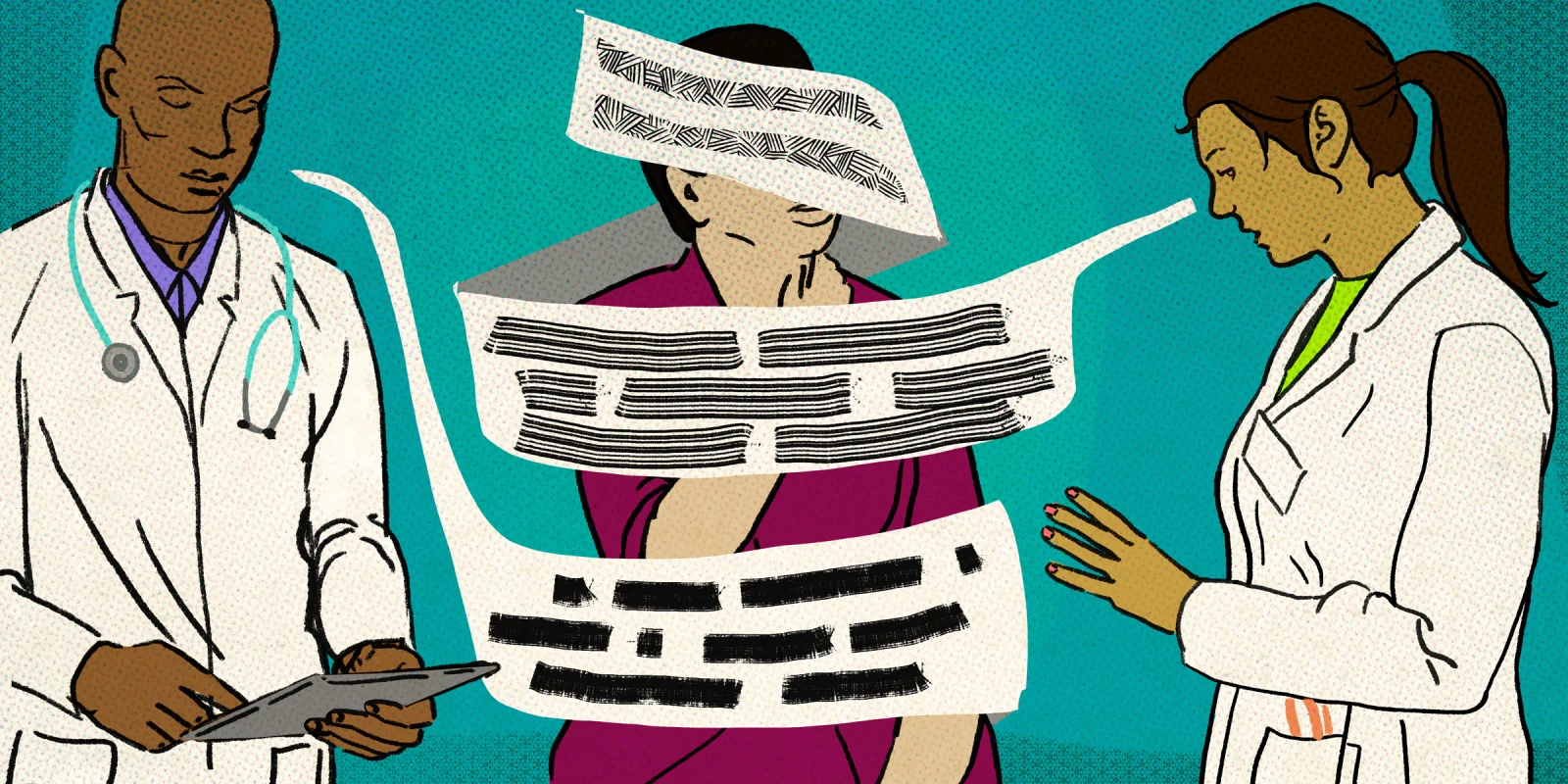“He’s a cirrhotic on warfarin.”
The surgeon repeated this sentence many times to the bewildered staff around him as the patient continued to bleed after many attempts to stop it. Nothing he said was incorrect. The patient had cirrhosis and was on warfarin, a blood thinner. And again, he’s probably correct that these two bits of information explained why this patient’s liver would not stop bleeding during a relatively routine laparoscopic cholecystectomy. But something about the way that he said it made me uneasy. “He’s a cirrhotic.” Three words and five syllables that transform this man from a human being into a condition. “He has cirrhosis,” accomplishes the same message with the same number of words and syllables without degrading this man to the equivalent of his unfortunate condition.
This is not a new phenomenon. A friend of mine in another medical school tells a story of the “39-year-old gallbladder,” that was presented to the room during a timeout. Excuse me? What is the gender of the patient? What’s their name? Would you say something like that to their face? And how did we get to the point of addressing patients, each with their own unique story and personality, only by their conditions? Perhaps it’s burnout, or a bad day, or the illusion of saving time, all of which probably contribute, but I would argue that the most prominent contribution to this degrading language comes from our medical system.
As medical students, we are impressionable. We want our residents and attendings to think we are competent and, if we want to pursue their field, we want them to envision us as future colleagues. When presenting on rounds, we start to talk how they talk because we want them to listen, and we want good reviews. We start to use that lingo with each other because we've heard our residents and attendings using it the entire day. Suddenly, “Hey, are you going to see that 32-year-old man undergoing an appendectomy?” becomes “Hey are you going for that appy that just came in?” I’m not saying that we need to know every patient’s entire life story, but I don’t think we should refer to patients who are out of the room or under anesthesia any differently than when we talk to them face-to-face. I would be shocked and furious if a clinician came into the room and asked, “So you’re the 25-year-old depressive on an SSRI, right?” And no one in their right mind would address anyone like that to their face.
How do we even possibly begin to address a system-wide problem that has most likely been reinforced through decades? Like most difficult problems, there is no simple answer. I certainly don’t have all of the solutions, but I have been pleasantly surprised with some of the approaches that my medical school has implemented to handle similar problems.
At the beginning of my first year, my entire class gathered to hear a man's story. We listened in horror as he told us about how his son died at the age of 27 after being mishandled by the medical system.
In the upcoming weeks, we gathered to hear stories from panelists with cystic fibrosis, substance use disorder, and even attended an Alcoholics Anonymous meeting as bystanders. All of these experiences allowed us to get a glimpse into the lives of patients beyond what we see in an outpatient office, hospital bed, or on an operating table. Fast forward to the third year of medical school, and we have the option to anonymously report unprofessional behavior of residents or attendings that we have worked with during a rotation. Additionally, we have mandatory professionalism meetings where students gather (socially distanced, of course, through Zoom) with faculty to address topics such as moral resilience, patient connection, and responding to loss. Often these integrative humanities and ethics sessions were begrudgingly attended by my colleagues and I as we counted down minutes to return to our medical studies. Looking back, I’m thankful for this part of my education.
I realize that I write this as a student, one that has yet to experience the challenges that come with residency and beyond. It’s no secret that burnout in our profession is all too common and can lead to feelings of complacency. But that is no excuse for the pattern of addressing our patients with increasing dehumanization. I’m proud that my medical school has brought to light some of the more uncomfortable aspects of medicine to help my colleagues and I become better, more humanistic clinicians.
Have you observed this behavior in your practice? How did you handle it? Share your experiences below!
Nick is a fourth-year medical student at Drexel University College of Medicine. He grew up in York, Pennsylvania before completing an undergrad at the University of Pittsburgh and an MPH at Thomas Jefferson University. He is going into Family Medicine with an interest in public health and working with underserved communities.
Illustration by Jennifer Bogartz







